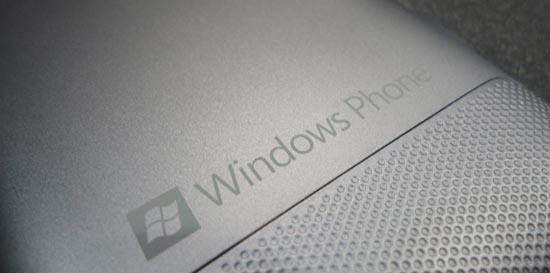
Around the mid-afternoon mark yesterday, news started finding its way around the Internet that Microsoft wouldn’t be making its own Windows Phone-based device. This probably wasn’t a shock to most people, but I can understand where the interest came from. After all, the speculation started up immediately following the unveiling of Microsoft’s Surface tablet. Or tablets, if you will. Actually, I’m sure there was speculation about Microsoft’s next move in the world of Windows Phone during the event, because when Microsoft reveals their own tablet, then the possibilities are endless, right?
Unfortunately, Microsoft’s Greg Sullivan, Senior Marketing Manager for Windows Phone popped that bubble today. He was speaking with Information Week, and he “confirmed” that Microsoft does not currently have any plans to manufacture their own Windows Phone devices. Bummer, right?
Absolutely.
And why is it a bummer? Because Microsoft really did an amazing job with the Surface tablet. It’s a nice looking device, and it has plenty of features that people will want when it eventually comes to market later this year. It showed that Microsoft knows how to take charge of manufacturing, and it shows that they know how to marry software and hardware. Windows 8 will be great on Surface, even if it doesn’t have the same market coverage that, say, the iPad does.
So when people started talking, muttering, even dreaming that Microsoft’s Surface unveiling could possibly lead to something else entirely, it was too be expected. Even in the back of my mind, I probably considered it a dream-come-true if Microsoft wanted to create a single device, a single halo device, to show off their hardware skills, as well as bring the next version of Windows Phone into the wild.
I do find it’s interesting that Microsoft cites that they have other hardware partners to think about when it comes to Windows Phone, but that apparently has no connection to their future tablet market. That may lead someone to assume that Microsoft’s tablet plans are a bit more “compartmentalized?” Smaller, even. I can’t see why there’s a difference between hardware partners for smartphones and tablets. Is there a difference? It’s still another manufacturer that agrees to use your software and release a product, right?
There is obviously more to it than that, but we’ll just take it at face value for now. So, as it stands at the moment, Microsoft is focusing on not creating a self-created Windows Phone due to hardware partners, but they don’t really care about hardware partners when it comes to the tablet plan. So does that mean that Microsoft wants to put a lot of focus on their own Surface tablet, while letting Windows Phone follow the route that other hardware manufacturers dig out for it?
If that is the case, why is that the case?
I think Microsoft should make their own Windows Phone device. Without a doubt, Microsoft has proven that they could create a handset that people would be naturally attracted to right from the start. And then they seal the deal with Windows Phone 8. This device, this fake and highly talked about device, could be the equivalent to Apple’s iPhone or Google’s Nexus line-up.
And that couldn’t be a bad thing for Microsoft, especially if they don’t lose sight of it the way that Google has done with their Nexus brand. If Microsoft could create a name brand that people talked about in the home (a household name, if you will), and climbed to the top of the ladder like the iPhone or Nexus, that would be good all around.
But, Microsoft has to think about the hardware partners, especially when it comes to the likes of Nokia. After all, the Lumia 900 is probably geared to be the straight combatant to the iPhone or Galaxy Nexus (only because it’s the most recent Nexus device to be released), and it isn’t directly manufactured by Microsoft. So maybe that’s why Microsoft isn’t gearing up to create their own smartphone, because they have Nokia in their pocket to do just that.
The question is: is that good enough?
So let me know what you think. Should Microsoft create their own smartphone? Or is Nokia the right way to handle that type of thing?